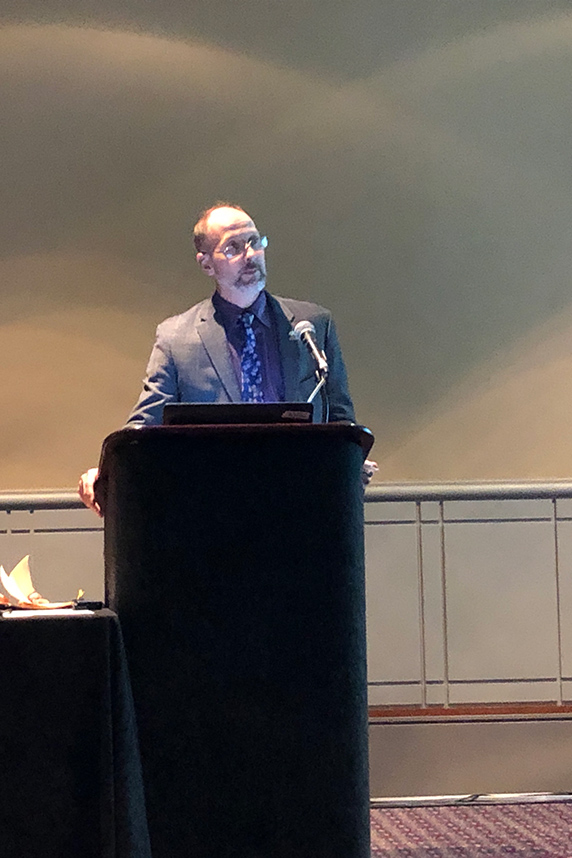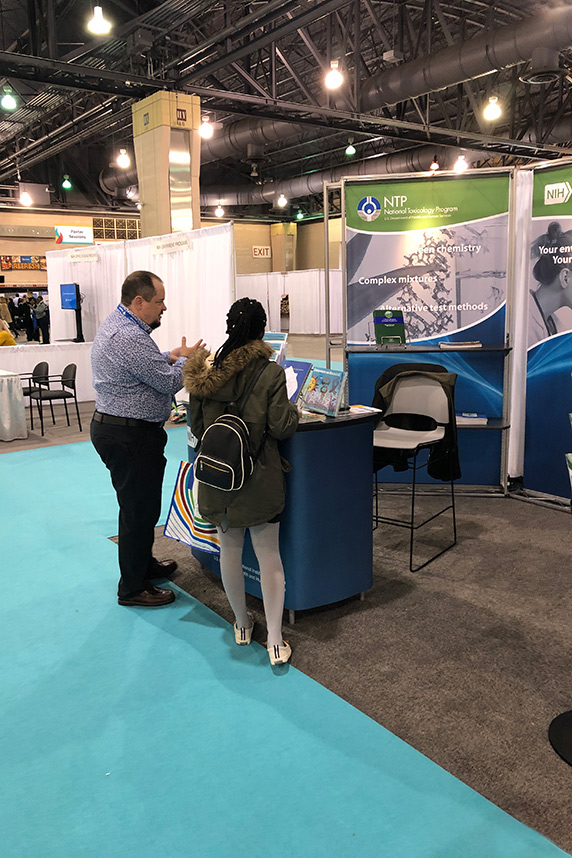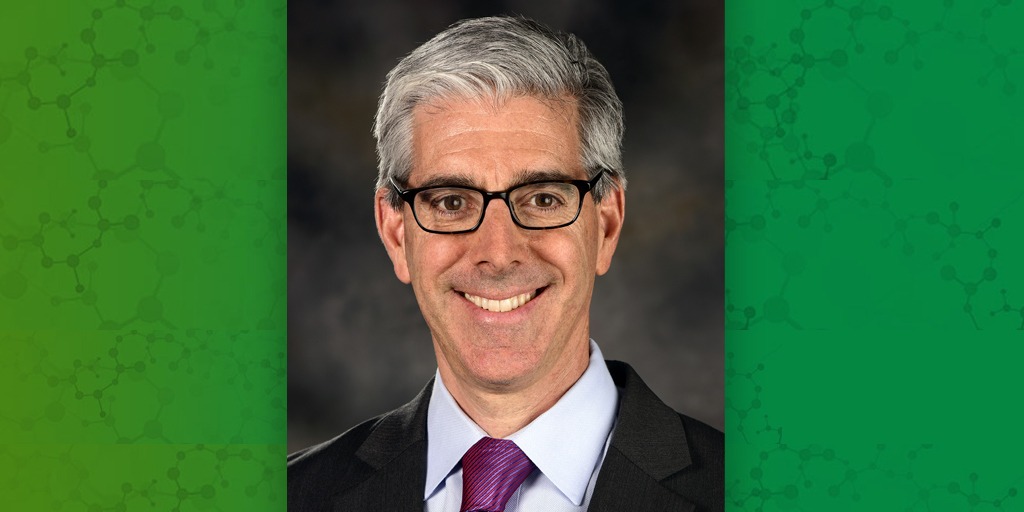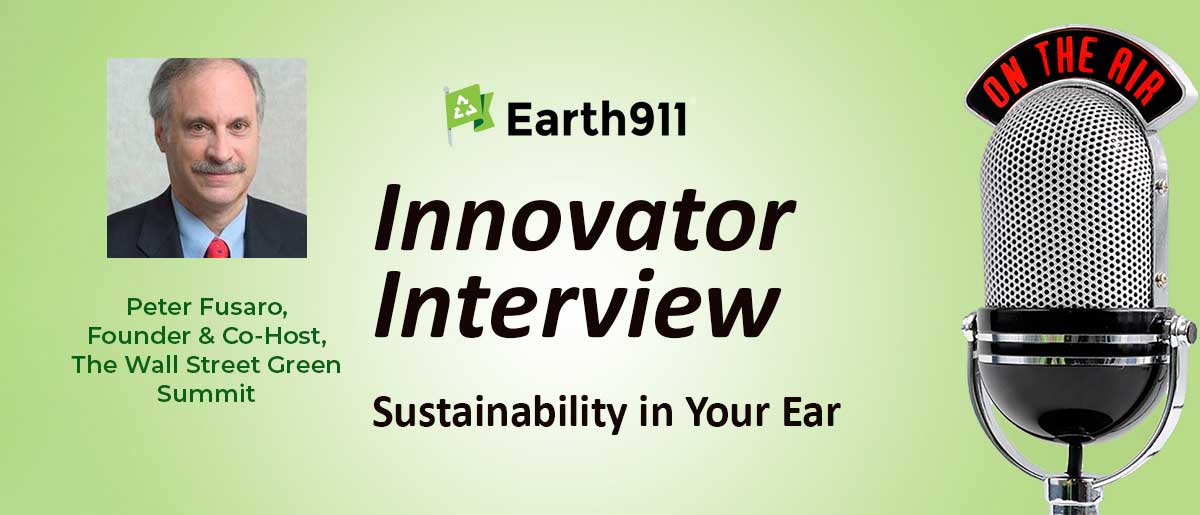Nearly 13,000 public health professionals gathered at the Philadelphia Convention Center Nov. 2-6 for the American Public Health Association’s (APHA) Annual Meeting and Expo. NIEHS staff members and recipients of NIEHS research grants hosted presentations on topics ranging from climate and human health to science communication.
Federal initiatives celebrated
Leaders from federal agencies spoke at a town hall session that marked the 30th anniversary of the U.S. Global Change Research Program (USGCRP).
According to USGCRP, “Global change encompasses climate change, but it also includes other critical drivers of environmental change … such as land use change, the alteration of the water cycle, changes in biogeochemical cycles, and biodiversity loss.”
John Balbus, M.D., NIEHS senior advisor for public health, reflected on the importance of the program. “[It] began as a Presidential Initiative in 1989,” he said. “Its goal is to coordinate global change research across the government.”
The town hall also celebrated the 10th anniversary of USGCRP’s Interagency Crosscutting Group on Climate Change and Human Health. Balbus noted that the group was created in part to connect research to public health professionals and decision-makers.
Attendees were shown new resources designed with that very goal in mind. For example, they were able to try out the NIEHS Global Environmental Health Program’s Climate Change and Human Health Literature Portal (see sidebar) and provide feedback as they explored its nearly 15,000 publications.
Health disparities amid a changing climate
At a session organized by NIEHS, authors of major reports on climate change and human health discussed how their findings could be used at the community level to reduce health disparities.
Balbus discussed the 4th National Climate Assessment, which was released by USGCRP. “[It] translates health impacts of climate action and inaction into economic terms, and provides a scientific assessment of how climate may impact health,” he said.
 “NIEHS has a long history of a commitment to fundamental science,” said O’Fallon. “We want to know how exposure impacts human health, but we also place a high priority on translation of that research into ways that different audiences can understand and use.” (Photo courtesy of Sheena Scruggs)
“NIEHS has a long history of a commitment to fundamental science,” said O’Fallon. “We want to know how exposure impacts human health, but we also place a high priority on translation of that research into ways that different audiences can understand and use.” (Photo courtesy of Sheena Scruggs)“In the coming years, there will be temperature extremes and heat waves — floods, drought, and other extreme weather events,” said Nick Watts, of the Lancet Countdown. His group’s latest report says the effects of that weather will not be felt equally. It states that children, the elderly, and outdoor workers are especially at risk.
Spreading the science
Liam O’Fallon, program director for NIEHS Partnerships for Environmental Public Health, moderated a session on making environmental health research accessible to wider audiences.
“One of our goals at NIEHS is to inform communities about the importance of children’s environmental health and to build environmental health literacy in those communities,” he said. “This can include parents, healthcare and childcare providers, or decision-makers.”
The session included four speakers — all from NIEHS- and EPA-funded Children’s Environmental Health Centers (CEHCs) — who reported on different ways to reach diverse audiences.
For example, Brenda Koester, from the University of Illinois at Urbana-Champaign, discussed how the CEHC there worked on a public service announcement called Disrupt the Disruptors.
It explains endocrine-disrupting chemicals and offers strategies to reduce exposure to them, especially in childcare settings. “The majority of children under the age of five are in some type of out-of-home care for an average of 33 hours per week,” she noted.
Award, exhibit booths
 Devlin Sawyer, from the NIEHS Office of Communications and Public Liaison, answered questions from a conference attendee. (Photo courtesy of Sheena Scruggs)
Devlin Sawyer, from the NIEHS Office of Communications and Public Liaison, answered questions from a conference attendee. (Photo courtesy of Sheena Scruggs)Grantee Carmen Velez Vega, Ph.D., from University of Puerto Rico, was awarded the APHA’s Helen Rodriguez-Trias Social Justice Award.
She was recognized for educating local communities about key public health issues following the Zika virus outbreak in 2016 and Hurricane Maria in Puerto Rico in 2017. For example, she provided information about how to avoid infection and contaminated drinking water. She also led efforts to distribute items such as mosquito nets, water filters, and batteries.
As in previous years, NIEHS showcased educational resources at its exhibit booth. Staffers were on hand to discuss such topics as career opportunities and children’s health.
(Sheena Scruggs, Ph.D., is the digital outreach coordinator in the NIEHS Office of Communications and Public Liaison.)
Source link
factor.niehs.nih.gov


